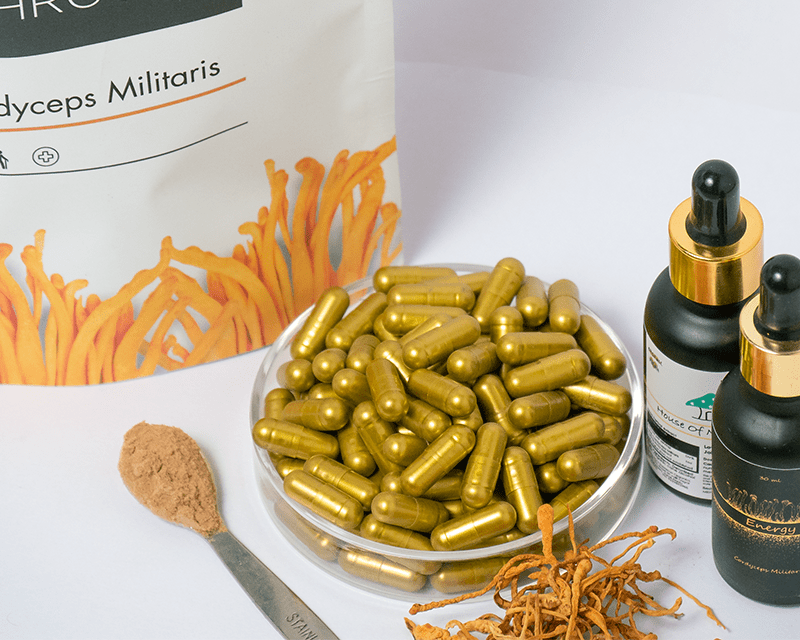Benefits of Cordyceps for Fertility:
Cordyceps is a natural supplement that has gained attention for its potential benefits in enhancing fertility. This medicinal mushroom has been traditionally used in Chinese medicine for centuries and is believed to support reproductive health in both men and women. One of the key benefits of cordyceps for fertility is its ability to improve sperm quality and motility in men, which can positively impact fertility outcomes.
In addition to its effects on male fertility, cordyceps is also thought to benefit women by regulating their reproductive hormones and menstrual cycle. By promoting hormonal balance, cordyceps may help optimize ovulation and improve the chances of conception. Overall, the antioxidant and anti-inflammatory properties of cordyceps contribute to its potential role in supporting overall reproductive health and fertility.
How Cordyceps Can Improve Reproductive Health:

Cordyceps is a powerful natural remedy that has shown promising results in improving reproductive health. Studies have indicated that Cordyceps can help regulate the menstrual cycle, improve ovulation, and enhance overall fertility in both men and women. By supporting the body's natural hormonal balance, Cordyceps may contribute to a healthier reproductive system and increase the chances of conception.
Additionally, Cordyceps is believed to have antioxidant properties that can protect reproductive cells from damage caused by oxidative stress. This can help improve sperm quality in men and egg quality in women, ultimately leading to better reproductive outcomes. By incorporating Cordyceps into a well-rounded fertility plan, individuals may be able to enhance their reproductive health and increase their likelihood of achieving pregnancy.
Research on Cordyceps and Fertility:
Cordyceps, a type of fungus known for its potential health benefits, has been gaining attention in the realm of fertility research. Several studies have explored the impact of cordyceps on reproductive health, particularly its ability to enhance fertility in both men and women. These studies have shown promising results, suggesting that cordyceps may play a role in improving various aspects of fertility, such as sperm quality, ovulation, and menstrual regularity.
One study conducted on animals found that cordyceps supplementation led to increased sperm count and motility, indicating its potential as a natural fertility aid. Additionally, research on women with polycystic ovary syndrome (PCOS) suggested that cordyceps may help regulate hormonal imbalances commonly associated with infertility. While more research is needed to fully understand the mechanisms behind cordyceps' effects on fertility, these initial findings are encouraging and highlight the potential of this natural supplement in supporting reproductive health.
Nutritional Components of Cordyceps That Support Fertility:
Cordyceps is a unique fungus known for its rich nutritional profile that supports fertility. It contains essential vitamins such as B vitamins, vitamin E, and vitamin K, all of which play crucial roles in reproductive health. These vitamins not only help in the development of reproductive cells but also support hormone regulation necessary for fertility.
Additionally, cordyceps is a good source of minerals like zinc, selenium, and magnesium, which are fundamental for reproductive functions. Zinc, for instance, is involved in the production of hormones critical for fertility, while selenium acts as an antioxidant protecting reproductive cells from damage. The presence of these nutritional components in cordyceps makes it a valuable natural supplement for promoting fertility.
Potential Side Effects of Using Cordyceps for Fertility:
While Cordyceps is generally well-tolerated by most individuals, there are some potential side effects that users should be aware of when using it for fertility purposes. Some users have reported mild gastrointestinal discomfort such as nausea, diarrhea, or bloating after consuming Cordyceps. These symptoms typically subside on their own as the body adjusts to the supplement.
In rare cases, allergic reactions to Cordyceps have been reported, resulting in symptoms such as itching, rash, or difficulty breathing. If you experience any of these symptoms after taking Cordyceps, it is important to discontinue use and seek medical attention. Additionally, individuals with a known allergy to molds or fungi may be at a higher risk of experiencing an adverse reaction to Cordyceps.
Recommended Dosage of Cordyceps for Fertility:
When considering the recommended dosage of Cordyceps for fertility, it is essential to remember that individual responses can vary. As a general guideline, experts suggest consuming around 1,000 to 3,000 milligrams of Cordyceps extract per day. Splitting this amount into two or three doses throughout the day may optimize absorption and effectiveness. Begin with a lower dosage and gradually increase it while monitoring how your body responds.
Moreover, consulting with a healthcare professional before starting any new supplement regimen, including Cordyceps for fertility, is highly advised. A healthcare provider can provide personalized recommendations based on your specific health needs, potential interactions with medications, and existing medical conditions. Additionally, they can assist in determining the appropriate dosage of Cordyceps to support your fertility goals effectively.
How Cordyceps Can Regulate Hormones Related to Fertility:
Cordyceps, a powerful adaptogen, has been shown to regulate hormones related to fertility in both men and women. Through its unique bioactive compounds, Cordyceps can help balance hormonal levels crucial for reproductive health. By supporting the endocrine system, Cordyceps can aid in optimizing hormone production and function, ultimately promoting fertility.
Studies have suggested that Cordyceps may have a regulatory effect on hormones such as testosterone, estrogen, and progesterone. This natural fungus has the potential to enhance hormonal equilibrium, which is essential for healthy ovulation in women and sperm production in men. By promoting hormonal balance, Cordyceps offers a holistic approach to improving fertility outcomes.
User Experiences with Cordyceps for Fertility:

Many individuals have reported positive experiences when incorporating cordyceps into their fertility journey. Some users have shared that they noticed an increase in their overall energy levels and stamina after taking cordyceps regularly. Additionally, some individuals have mentioned experiencing improved libido and reproductive health while using cordyceps as a supplement. These anecdotal accounts suggest that cordyceps may have a beneficial impact on fertility for certain individuals.
On the other hand, a few users have mentioned experiencing minor side effects such as mild gastrointestinal discomfort or headaches when using cordyceps for fertility purposes. It is important to note that individual responses to supplements can vary, and consulting with a healthcare professional before starting any new regimen is always recommended. Despite some potential side effects, many users who have incorporated cordyceps into their fertility regimen have reported positive outcomes, highlighting the potential benefits of this natural supplement.
Comparing Cordyceps to Other Natural Supplements for Fertility:
When it comes to natural supplements for fertility, cordyceps stands out for its unique properties that support reproductive health. Unlike some other natural supplements, cordyceps contains a variety of nutrients and bioactive compounds known to enhance fertility by regulating hormones and improving overall reproductive function. Additionally, cordyceps has a long history of traditional use in various cultures for its fertility-enhancing effects.
Some natural supplements may focus on specific aspects of fertility, such as improving egg quality or enhancing sperm motility, while cordyceps offers a more holistic approach by addressing multiple factors that influence reproductive health. The adaptogenic properties of cordyceps help the body adapt to stressors and maintain hormonal balance, which are crucial for optimal fertility. When considering natural supplements for fertility, cordyceps emerges as a comprehensive option that supports overall reproductive well-being.
Consulting with a Healthcare Professional Before Using Cordyceps for Fertility:
Before incorporating Cordyceps into your fertility regimen, it is crucial to seek guidance from a healthcare professional. Consulting with a doctor or a fertility specialist can help determine if Cordyceps is suitable for your specific needs and health conditions. They can provide personalized advice on the dosage, potential interactions with medications, and any precautions that need to be taken.
Healthcare professionals can also offer valuable insights on how Cordyceps may interact with your individual health history and overall fertility goals. By having an open dialogue with a professional, you can make informed decisions about incorporating Cordyceps into your fertility journey and ensure that it complements your existing treatment plan or supplements. Remember, the expertise of a healthcare provider is essential in guiding you towards safe and effective ways to enhance your fertility with the help of Cordyceps.


